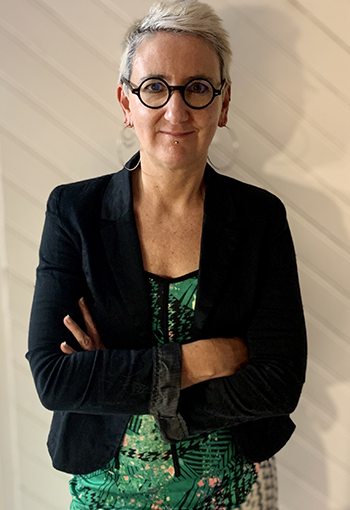Transitions: new challenges for cities and territories

The 6th edition of Future Days will open on November 29th. This year, the format of these meetings has evolved. Can you present it to us?
We wanted Future Days to be an event for the University as a whole, and therefore proposed that the sessions be held on the various campuses. November 29 will be the launch day of the Future Days on the Marne-la-Vallée campus of the Gustave Eiffel University, but similar days will be organized between February and June on all the other campuses. These different events will be organized around the same theme, namely the dynamics of transition in the various territories. Once again, the choice has been made to give priority to dialogue between research and the socio-economic world, as we initiated last year.
The theme chosen is transitions: why did we choose this theme and what transitions are we talking about?
The territories are confronted with many challenges that invite us to think about changes in our ways of doing things. There is a lot of talk about ecological transition or, especially at the moment, energy transition. But we would like to talk about transitions in their diversity, whether they are ecological and energetic, but also social, economic, or digital. These transitions can also concern different objects: our ways of moving, our ways of producing, our ways of planning the city or our democratic practices. Indeed, territories have specific issues depending on their socio-economic, cultural, and historical contexts, as well as on the governance methods in place. It is therefore important to be able to understand these specificities in order to propose appropriate responses. The challenge is also to insist on the fact that there is no good solution in the absolute, but rather solutions to be configured as close as possible to the realities of the field.
What is the expertise of the Gustave Eiffel University on these topics?
On this theme of transitions, our institution has a real role to play and it is important to show how our work can shed light on a certain number of decisions, but also to show the specificities of the questions relating to transitions according to the territories.
The strategies of the territories already address many themes of the ecological transition but in a compartmentalized manner. They almost systematically focus on the energy-climate component. Other issues are also addressed: responsible production and consumption, water and sanitation management, waste management, and to a lesser extent the protection of biodiversity and terrestrial and maritime ecosystems, as well as the well-being and health component. But it is essential to support local authorities in the development and deployment of truly global transition strategies, mobilizing the various sectoral levers (transport, water management, waste management, etc.) and considering all dimensions (economic, environmental, social). It is on these systemic approaches that the university truly asserts its specificity, through the diversity of the themes of its work (mobility, civil engineering, network management, governance...), its disciplines or its cultures (engineers, architects, academics...).
What are you expecting from these meetings?
These meetings should make it possible to show how our work can support the development of these global approaches, by mobilizing internal skills on these different campuses. Of course, they should also provide an opportunity to discuss responses to these challenges, addressing both their technological and non-technological dimensions, the ways in which they emerge and are disseminated, the economic model for these solutions, and sometimes the skills required when new professions are involved, as well as governance issues, all from a global perspective. The point is to show that solutions must be adapted to the specific contexts of the territories, and our presence in very diverse territories is an asset in this respect.
This project is therefore fully aimed at reinforcing the University's societal mission, which is enshrined in the University's statutes and which also forms the basis of its identity. The University's third major mission, alongside research and education, is to anchor the University in society. In this respect, the University has a responsibility to reach out to the territories, to be inventive in establishing or renewing a dialogue between science and society. With this new format of Future Days, we are part of this dynamic.